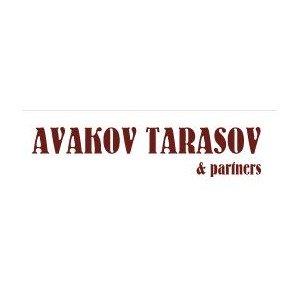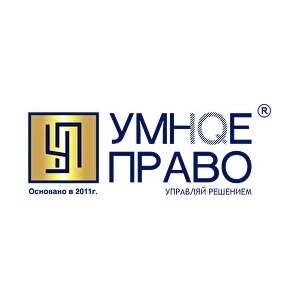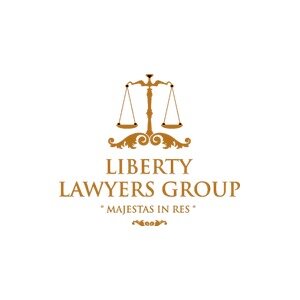Best Antitrust Litigation Lawyers in Russia
Share your needs with us, get contacted by law firms.
Free. Takes 2 min.
Or refine your search by selecting a city:
List of the best lawyers in Russia
About Antitrust Litigation Law in Russia
Antitrust litigation in Russia concerns legal proceedings relating to the enforcement and upholding of competition laws. The goal of antitrust laws in Russia is to prevent practices that may restrict competition or create monopolies, ensuring that markets remain open and fair for businesses and consumers. The primary legislation governing these matters is the Federal Law No. 135-FZ "On Protection of Competition." The Russian Federal Antimonopoly Service (FAS) is responsible for monitoring market activities, investigating potential violations, and imposing penalties where required. Litigation often arises when companies or individuals are accused of anti-competitive conduct or if they challenge regulatory decisions in court.
Why You May Need a Lawyer
Antitrust litigation can be complex due to the intricate legal and economic principles involved. You may require legal assistance in situations such as:
- Your company is under investigation by the Federal Antimonopoly Service for allegedly violating competition laws.
- You have been penalized for cartel agreements, abuse of dominant position, or unfair competition.
- You are a victim of anti-competitive practices and want to seek damages in court.
- You are involved in mergers or acquisitions that require approval under Russian competition law.
- You need guidance on compliance with Russian antitrust law to avoid future disputes.
- You want to appeal an antitrust decision or administrative fine imposed on your business.
Local Laws Overview
Antitrust regulation in Russia is mainly governed by the Federal Law No. 135-FZ "On Protection of Competition," adopted in 2006 and amended several times. Key provisions include:
- Prohibition of agreements that restrict competition, such as price-fixing, market division, and collusion between competitors.
- Bans on abusing a dominant market position, such as unfair pricing, refusing to supply, or imposing unfavorable terms on partners.
- Procedures for prior notification or approval of mergers that meet certain turnover thresholds.
- Rules on unfair competition, including the use of misleading advertising, unauthorized use of trademarks, and disparagement of competitors.
- Powers granted to the Federal Antimonopoly Service to investigate, conduct inspections, and impose fines or remedies.
- Opportunities for companies and individuals to challenge FAS decisions in commercial courts.
Frequently Asked Questions
What is considered an antitrust violation in Russia?
An antitrust violation generally involves agreements or actions that restrict competition, such as cartels, abuse of dominant market position, unlawful mergers, and certain types of unfair competition.
Who enforces antitrust laws in Russia?
The Federal Antimonopoly Service (FAS) is the primary regulatory body responsible for enforcing antitrust laws and investigating suspected violations.
What are common penalties for violating antitrust laws?
Penalties include administrative fines, orders to cease the unlawful conduct, confiscation of illegal profits, and sometimes disqualification of company executives.
Can a business challenge a FAS decision?
Yes, companies and individuals have the right to appeal FAS decisions to commercial courts within established time limits.
What should I do if my company is under investigation?
Seek legal advice immediately. Cooperate with the authorities, collect relevant documents, and do not make any statements without consulting your lawyer.
Are all mergers scrutinized by FAS?
No, only mergers and acquisitions exceeding certain financial thresholds or involving dominant market players are subject to prior notification or approval by FAS.
How does FAS detect violations?
FAS may initiate investigations based on complaints from competitors or consumers, analysis of market data, or during regular audits.
Can individuals report suspected antitrust violations?
Yes, any person or organization can submit a complaint to the FAS if they suspect a violation of competition laws.
What is the statute of limitations for antitrust cases?
The general limitation period for administrative liability is one year from the discovery of the violation, but this can vary depending on the circumstances.
Do Russian antitrust laws apply to foreign companies?
Yes, if the activities of foreign companies affect competition in Russian markets, they may be subject to Russian antitrust law.
Additional Resources
If you need more information or wish to make a complaint, consider these helpful resources:
- Federal Antimonopoly Service (FAS) - The official regulator for antitrust law in Russia
- Chambers of Commerce and Industry - Often provide guidance and resources on compliance and dispute resolution
- Russian Union of Industrialists and Entrepreneurs - Offers updates and best practices for businesses
- Legal Aid Centers - May provide pro bono legal assistance to individuals and small businesses
- Academic Institutions - Many law schools offer research and publications on competition law topics
Next Steps
If you believe you need assistance with an antitrust matter in Russia, take the following steps:
- Gather all relevant documentation, such as correspondence, contracts, and any notices received from regulatory bodies.
- List your main concerns or questions to help your lawyer understand your situation quickly.
- Contact a reputable legal firm or antitrust specialist, preferably with experience in Russian competition law and litigation.
- Attend a legal consultation to discuss your case and potential strategies.
- Stay informed about legal deadlines and procedural requirements to protect your rights effectively.
Lawzana helps you find the best lawyers and law firms in Russia through a curated and pre-screened list of qualified legal professionals. Our platform offers rankings and detailed profiles of attorneys and law firms, allowing you to compare based on practice areas, including Antitrust Litigation, experience, and client feedback.
Each profile includes a description of the firm's areas of practice, client reviews, team members and partners, year of establishment, spoken languages, office locations, contact information, social media presence, and any published articles or resources. Most firms on our platform speak English and are experienced in both local and international legal matters.
Get a quote from top-rated law firms in Russia — quickly, securely, and without unnecessary hassle.
Disclaimer:
The information provided on this page is for general informational purposes only and does not constitute legal advice. While we strive to ensure the accuracy and relevance of the content, legal information may change over time, and interpretations of the law can vary. You should always consult with a qualified legal professional for advice specific to your situation.
We disclaim all liability for actions taken or not taken based on the content of this page. If you believe any information is incorrect or outdated, please contact us, and we will review and update it where appropriate.
Browse antitrust litigation law firms by city in Russia
Refine your search by selecting a city.

















